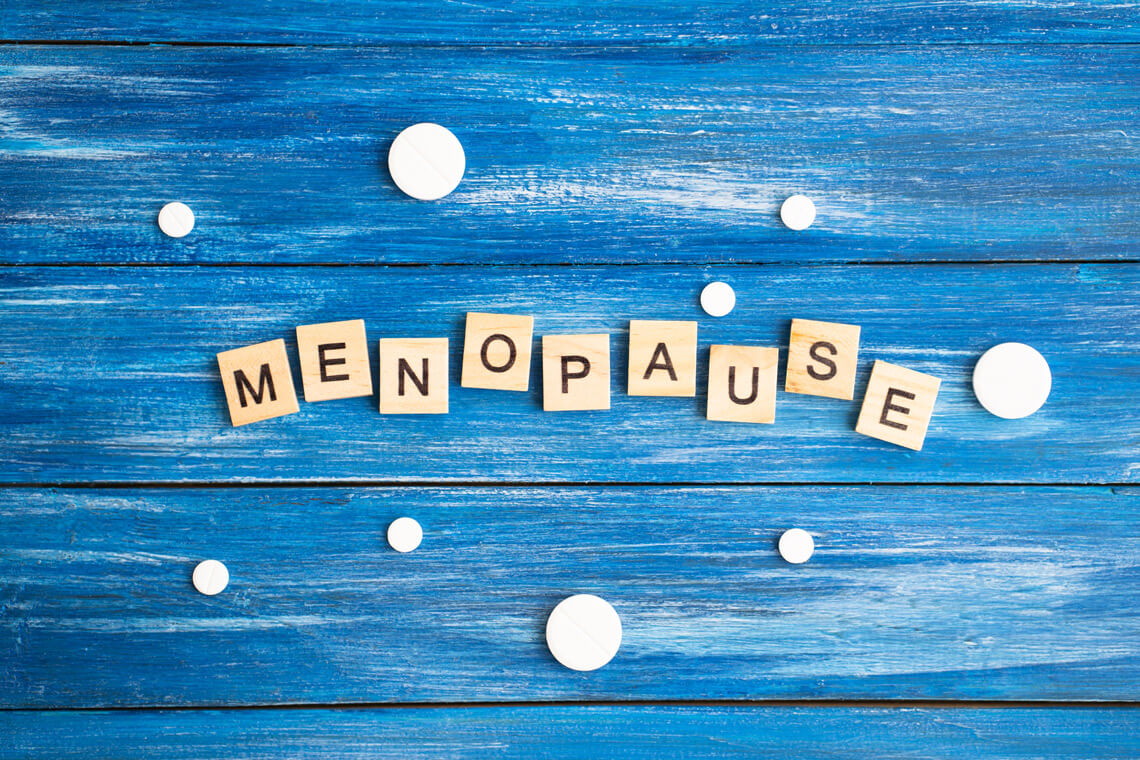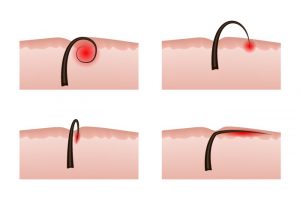I have the privilege of waxing women across a broad age spectrum. This means many of you are either perimenopausal or menopausal and I thought it would be helpful to write this blog to highlight how this may effect your waxing experience and how we can reduce the chance of problems occurring during and post waxing
The medical definition for menopause is when you have not had a period for one year and your ovaries no longer produce eggs and therefore the levels of hormones estrogen, progestrerone and testosterone fall. Estrogen plays an important role within a woman’s body including bones, memory, mood and even skin and hair. Perimenopause is the term used to describe before the menopause when you’re experiencing symptoms and are still having periods. You may notice your periods change during perimenopause, whereby they’re closer or further apart, heaver or lighter. It is during perimenopause that the 3 hormones listed above begin to greatly fluctuate and this imbalance in these hormones causes you to experience symptoms. For some women these symptoms may go on for a few months and then the periods stop but for others they may experience symptoms for months and years before their periods eventually stop. When you read about menopausal symptoms it also includes perimenopausal symptoms as they are the same, they are both due to hormonal changes.
The average age for a woman to reach menopause in the UK is age 51. Symptoms of perimenopause often start at aroung age 45 but it is not uncommon for women to experience them in their early 40s. Certain conditions and surgery can also bring on early menopause.
The majority of women will experience symptoms during their menopause, the severity of symptoms will vary significantly from woman to woman. Common symptoms of perimonpause include: period changes (often the first sign), hot flushes, night sweats, mood changes, fatigue, poor sleep, brain fog, loss of sexual desire, joint pains, muscle aches, hair and skin changes (such as excess dryness and thinning hair but increased hair on the face) and vaginal and urinary symptoms (such as dryness, itching and possible involuntary leakage of urine).
How could these symptoms effect your waxing service? As a result of lower levels of estrogen making the skin more dry, thin, itchy and less elastic, waxing can be more uncomfortable if your skin is not well prepared. Between waxing you can also be more prone to irritation and ingrown hairs so following aftercare is so important and will make your waxing experience more comfortable.
Waxing can actually help you feel more comfortable whilst you live with these symptoms. As the skin is more dry due to estrogen levels dropping, it will inevitably be more irritated and itchy. Hair on the vulva (especially shaved!)can make the itching worse as the hairs naturally create some friction against the already itchy dry skin. Having the hair professionally removed by a wax that is gentle to the skin; can ensure a more comfortable experience for you as you will get a few weeks without any hair regrowth and softer hair growing back which won’t aggravate the dry skin and exacerbate itching.
Waxing makes the hair grow back softer and more sparse, which is great! However, as the hair is softer it will have a more difficult time growing out of the skin; particularly if there is a lot of dry dead skin cells getting in the way. The solution to this is to ensure you moisturise using a non-scented body lotion or cream DAILY. This will ensure the skin is supple and helps the softer hair grow back out ready for the next wax. It is also important to gently exfoliate 2/3 times per week to remove the build up of dead skin cells. Wearing cotton underwear as often as possible really helps too as this material doesn’t aggravate the skin and allows the skin to breathe.
If you’re going through peri/menopause, I will ensure your waxing experience is as comfortable as possible, using an excellent quality wax and an effective technique and in between waxing you can do some simple and quick steps to keep your skin in optimal condition and prepped for the next wax.
There are other things you can do in terms of lifestyle adjustments to help you manage your symptoms and this is something your healthcare professional can advice you on as well as reading the advice from the websites linked below.
So to recap:
- Wear cotton underwear as often as possible.
- Gentle exfoliate 2/3 times weekly to remove dry, dead skin cells.
- Moisturise the waxed areas daily using a non-scented body lotion/cream.
- Eat a good balance diet, in particular ensuring you take enough good fats in your diet which help keep skin healthy.
- Stay hydrated, the skin is the largest organ of the body and needs to keep topped up with hydration.
Here are some websites which provide helpful information about peri/menopause:
https://www.newsonhealth.co.uk/
https://www.nhmenopausesociety.org/
https://www.themenopausecharity.org/






